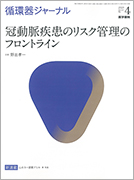1) Gerstein HC, Miller ME, Byington RP, et al:Effects of intensive glucose lowering in type 2 diabetes. N Engl J Med 358:2545-2559, 2008
2) Duckworth W, Abraira C, Moritz T, et al:Glucose control and vascular complications in veterans with type 2 diabetes. N Engl J Med 360:129-139, 2009
3) Patel A, MacMahon S, Chalmers J, et al:Intensive blood glucose control and vascular outcomes in patients with type 2 diabetes. N Engl J Med 358:2560-2572, 2008
4) UK Prospective Diabetes Study(UKPDS)Group:Intensive blood-glucose control with sulphonylureas or insulin compared with conventional treatment and risk of complications in patients with type 2 diabetes(UKPDS 33). Lancet 352:837-853, 1998
5) Holman RR, Paul SK, Bethel MA, et al:10-year follow-up of intensive glucose control in type 2 diabetes. N Engl J Med 359:1577-1589, 2008
6) Davies MJ, D'Alessio DA, Fradkin J, et al:Management of hyperglycaemia in type 2 diabetes, 2018. A consensus report by the American Diabetes Association(ADA)and the European Association for the Study of Diabetes(EASD). Diabetologia 61:2461-2498, 2018
7) UK Prospective Diabetes Study(UKPDS)Group:Effect of intensive blood-glucose control with metformin on complications in overweight patients with type 2 diabetes(UKPDS 34). Lancet 352:854-865, 1998
8) Dormandy JA, Charbonnel B, Eckland DJ, et al:Secondary prevention of macrovascular events in patients with type 2 diabetes in the PROactive Study(PROspective pioglitAzone Clinical Trial In macroVascular Events):a randomised controlled trial. Lancet 366:1279-1289, 2005
9) Erdmann E, Dormandy JA, Charbonnel B, et al:The effect of pioglitazone on recurrent myocardial infarction in 2, 445 patients with type 2 diabetes and previous myocardial infarction:results from the PROactive(PROactive 05)Study. J Am Coll Cardiol 49:1772-1780, 2007
10) Nissen SE, Nicholls SJ, Wolski K, et al:Comparison of pioglitazone vs glimepiride on progression of coronary atherosclerosis in patients with type 2 diabetes:the PERISCOPE randomized controlled trial. JAMA 299:1561-1573, 2008
11) Tominaga M, Eguchi H, Manaka H, et al:Impaired glucose tolerance is a risk factor for cardiovascular disease, but not impaired fasting glucose. The Funagata Diabetes Study. Diabetes Care 22:920-924, 1999
12) Chiasson JL, Josse RG, Gomis R, et al:Acarbose treatment and the risk of cardiovascular disease and hypertension in patients with impaired glucose tolerance:the STOP-NIDDM trial. JAMA 290:486-494, 2003
13) Hanefeld M, Cagatay M, Petrowitsch T, et al:Acarbose reduces the risk for myocardial infarction in type 2 diabetic patients:meta-analysis of seven long-term studies. Eur Heart J 25:10-16, 2004
14) Zinman B, Wanner C, Lachin JM, et al:Empagliflozin, Cardiovascular Outcomes, and Mortality in Type 2 Diabetes. N Engl J Med 373:2117-2128, 2015
15) Mahaffey KW, Neal B, Perkovic V, et al:Canagliflozin for Primary and Secondary Prevention of Cardiovascular Events:Results From the CANVAS Program(Canagliflozin Cardiovascular Assessment Study). Circulation 137:323-334, 2018
16) Wiviott SD, Raz I, Bonaca MP, et al:Dapagliflozin and Cardiovascular Outcomes in Type 2 Diabetes. N Engl J Med 380:347-357, 2019
17) Marso SP, Daniels GH, Brown-Frandsen K, et al:Liraglutide and Cardiovascular Outcomes in Type 2 Diabetes. N Engl J Med 375:311-322, 2016
18) Marso SP, Bain SC, Consoli A, et al:Semaglutide and Cardiovascular Outcomes in Patients with Type 2 Diabetes. N Engl J Med 375:1834-1844, 2016

